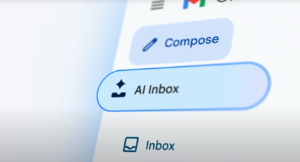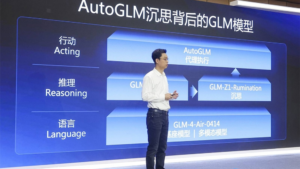OpenAI 2025 at around $20 billion ARR, plans to launch cloud business

Sam Altman, CEO of ChatGPT developer OpenAI, has spoken out in a comprehensive post on the platform X to clear up misunderstandings about his company’s financing strategy. In doing so, he provided concrete insights into revenue figures and the ambitious investment plans of the AI pioneer for the first time.
What remains unclear, to mention this upfront: Whether OpenAI really plans to go public in 2026 with a targeted valuation of one trillion dollars. Currently, investors value it at about 500 billion dollars. There is also no clarification about how much money OpenAI is losing. According to rumors, the losses are said to amount to more than 10 billion dollars per quarter.
Clear rejection of government aid
Right at the beginning of his statement, Altman makes it unequivocally clear: “We don’t have government guarantees for OpenAI data centers and we don’t want them. We believe that governments should not pick winners and losers and that taxpayers should not bail out companies that make bad business decisions or otherwise fail in the market.”
This clear positioning counters market rumors suggesting that OpenAI is seeking government backing for its massive infrastructure investments. Altman adds: “If a company fails, other companies will do a good job.”
However, the OpenAI CEO advocates for governments to build their own AI infrastructure – though for the benefit of the general public: “What we do think makes sense is for governments to build (and own) their own AI infrastructure, but then the benefits from that should accrue to the government.”
Impressive business figures and gigantic investment plans
For the first time, Altman reveals concrete figures about OpenAI’s business success: “We expect to end this year at an annualized revenue run rate of over $20 billion and to grow to hundreds of billions by 2030.”
The planned investments are of monumental scale: “We’re looking at commitments of about $1.4 trillion over the next 8 years.” Altman acknowledges that this requires further revenue growth but remains optimistic: “Obviously this requires continued revenue growth, and each doubling is a lot of work! But we feel good about our prospects.”
New business areas and products
The CEO outlines several new business areas that should contribute to growth. Besides an upcoming enterprise offering, he mentions “categories like new consumer devices and robotics, which we expect to be very significant.”
Particularly exciting: OpenAI plans to sell computing capacity directly. “We’re also looking at ways to sell compute more directly to other companies (and people); we’re pretty sure the world is going to need a lot of ‘AI cloud’, and we’re excited to offer this.”
Another future field is AI for scientific discoveries – though Altman admits: “There are also new categories where we have a hard time making concrete estimates, like AI that can make scientific discoveries.”
“Too big to fail?” – A clear rejection
To the question of whether OpenAI is trying to become systemically important, Altman responds unequivocally: “Our answer to this is a clear no. If we mess up and can’t fix it, we should fail, and other companies will continue to do good work and serve customers. That’s how capitalism works, and the ecosystem and economy would be fine.”
Altman justifies the enormous investments with urgency: “We are trying to build infrastructure for a future AI-powered economy, and given everything we see on the horizon in our research program, this is the time to invest.”
Even today, computing capacity is scarce: “Even today, we and others have to limit our products and don’t offer new features and models because we are facing such a severe compute constraint.”
He articulates his vision emphatically: “Our mission requires us to do what we can to not wait many more years to apply AI to hard problems like helping cure deadly diseases and to bring the benefits of AGI to people as soon as possible.”
“That’s the bet we’re making”
In conclusion, the OpenAI CEO shows confidence: “It’s a great privilege to get to be in the arena and have the conviction to take a shot at building infrastructure at this scale for something so important. That’s the bet we’re making, and from our vantage point, we feel good about it. But we could of course be wrong, and the market—not the government—will deal with it if we are.”
With this statement, Altman clearly positions himself as an advocate of free-market principles who hopes for government support in semiconductor production but expects no safeguards for his business model – while simultaneously revealing the most ambitious investment plans in the tech ind






























